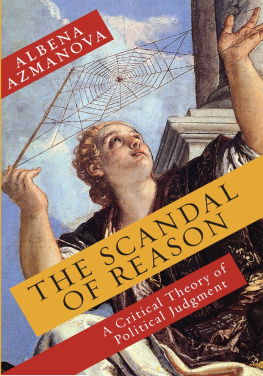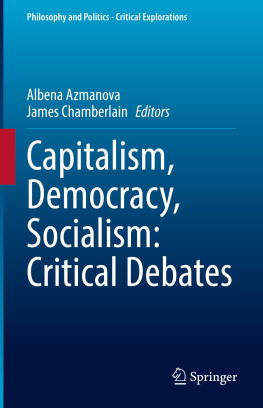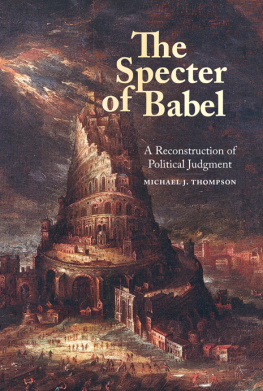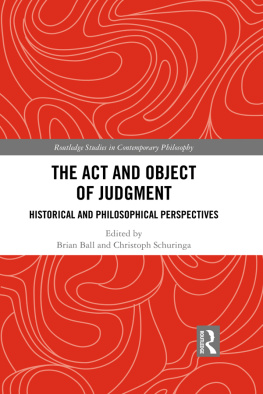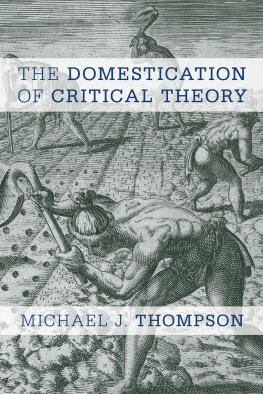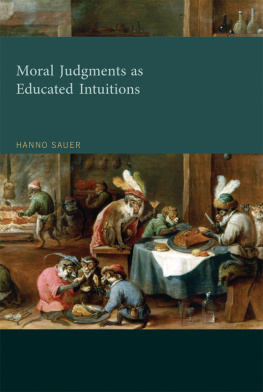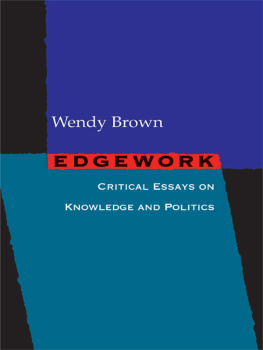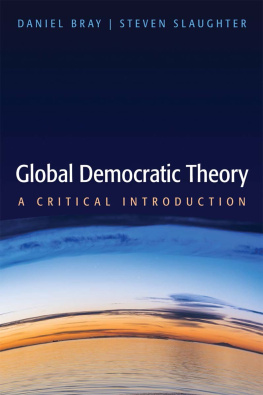THE SCANDAL OF REASON
New Directions in Critical Theory
New Directions in Critical Theory
Amy Allen, General Editor
New Directions in Critical Theory presents outstanding classic and contemporary texts in the tradition of critical social theory, broadly construed. The series aims to renew and advance the program of critical social theory, with a particular focus on theorizing contemporary struggles around gender, race, sexuality, class, and globalization and their complex interconnections.
Narrating Evil: A Postmetaphysical Theory of Reflective Judgment, Mara Pa Lara
The Politics of Our Selves: Power, Autonomy, and Gender in Contemporary Critical Theory, Amy Allen
Democracy and the Political Unconscious, Nolle McAfee
The Force of the Example: Explorations in the Paradigm of Judgment, Alessandro Ferrara
Horrorism: Naming Contemporary Violence, Adriana Cavarero
Scales of Justice: Reimagining Political Space in a Globalizing World, Nancy Fraser
Pathologies of Reason: On the Legacy of Critical Theory, Axel Honneth
States without Nations: Citizenship for Mortals, Jacqueline Stevens
The Racial Discourses of Life Philosophy: Ngritude, Vitalism, and Modernity, Donna V. Jones
Democracy in What State? Giorgio Agamben, Alain Badiou, Daniel Bensad, Wendy Brown, Jean-Luc Nancy, Jacques Rancire, Kristin Ross, and Slavoj iek
Politics of Culture and the Spirit of Critique: Dialogues, edited by Gabriel Rockhill and Alfredo Gomez-Muller
The Right to Justification: Elements of Constructivist Theory of Justice, Rainer Forst
The Scandal of Reason
A CRITICAL THEORY OF POLITICAL JUDGMENT
Albena Azmanova
COLUMBIA UNIVERSITY PRESS NEW YORK
COLUMBIA UNIVERSITY PRESS
Publishers since 1893
NEW YORK CHICHESTER, WEST SUSSEX
cup.columbia.edu
Copyright 2012 Columbia University Press
All rights reserved
E-ISBN 978-0-231-52728-6
Library of Congress Cataloging-in-Publication Data
Azmanova, Albena. The scandal of reason: a critical theory of political judgment / Albena Azmanova.
p. cm.(New directions in critical theory) Includes bibliographical references and index.
ISBN 978-0-231-15380-5 (cloth: alk. paper)ISBN 978-0-231-52728-6 (ebook)
1. political sciencePhilosophy. 2. JudgmentPolitical aspects. I. Title. II. Series.
JA71.A95 2012 320.01dc23
2011032179
A Columbia University Press E-book.
CUP would be pleased to hear about your reading experience with this e-book at .
References to Internet Web sites (URLs) were accurate at the time of writing. Neither the author nor Columbia University Press is responsible for URLs that may have expired or changed since the manuscript was prepared.
CONTENTS
This book is about political judgment. Yet, in defiance of sound judgment and maybe also of good taste, I welcome my readers by disclosing the personal reasons for writing it.
I moved to New York in the early 1990s, just after participating in the dissident movements and student revolts that helped to bring down the communist regime in my native Bulgaria. Freshly emerged from the turbulence of a revolution, albeit a largely peaceful one, I felt bewildered by the debates on justice in the West. Preoccupation with economic redistribution, gender equality, cultural diversity, and action against sexual harassment appeared all too smug to me when set against the multiple frustrations of life under political oppression and a bankrupt economic systemboth under communism and its aftermath.
Added to my stupefaction at the self-indulgence of the West was my puzzlement at the intellectual authority of theories of deliberative democracy and theories of communicative action in general as paragons of social criticism. I could not understand how serious people, without a trace of irony or cynicism, would rely on talking to set right injustice. Why count on communicative therapy to remedy socially produced suffering?
Over time, the two sources of my dissatisfaction became strands of analysis: How are our judgments of justice affected by what we consider to be relevant experiences of injustice? How can public debate make its participants aware of the deep social structures that generate injustice? The answers to these questions became the foundation of a theory of political judgmentfirst developed in my doctoral dissertation at the New School. It was awarded the Hannah Arendt Memorial Award for Politics, but I preferred not to publish it before providing some empirical support to what I feared was too bold a theory.
In writing this book, I have drawn on the wisdom and wit of Nancy Fraser, Alessandro Ferrara, Mara Pa Lara, Andrew Arato, Claus Offe, Ira Katznelson, Ian Shapiro, Rainer Forst, David Plotke, Seyla Benhabib, Philippe van Parijs, James Fishkin, Jane Mansbridge, and Charles Jones among many others. I am grateful to my husband, Steffen Elgersma, for his patient complicity, and to our children Mirella and Victor for their eagerness to see a book being born.
And I count on readers to let me know where I am right or wrong or neitheras the Scandal of Reason would not allow a simple choice while setting us, nevertheless, in the right direction.
July 2011, Brussels and Plovdiv
P OOR JUDGMENT IN POLITICS TENDS TO BE COSTLY, though it comes in remarkable diversity of occasionally entertaining form. On the eve of the French Revolution, Queen Marie-Antoinette advised the rebellious crowds to eat cake (brioche) for want of bread. She lost her head. On the eve of the American Civil War, the ruling elites in eleven Southern slave states declared secession, invoking the right to private property as justification for safeguarding slavery. They lost their cause. In the midst of the Lewinski political sex scandal, President Clintons denial of his extramarital affair under oath in court incurred impeachment charges of perjury, abuse of power, and obstruction of justicea situation caused, by Clintons own admission, by his poor judgment. He lost much of his reputation.
Erroneous judgment is not a matter of a wrong choice of a course of action (and has little to do with the poor taste and bad sense of humor that it frequently involves), although it might indeed lead to deplorable decisions. It is, rather, a matter of fallacious assessment of the grounds on which political authority can act, be it the right to slave ownership as justification for territorial independence in mid-nineteenth-century America; the unconditional nature of political authority in the French absolute monarchy of the late eighteenth century; or the constitutional right of privacy as a valid reason for obstructing justice in the twentieth-century United States.
It is not difficult to recognize poor judgment. But how do we know what good political judgment is? What are sound grounds of political action? A comprehensive, morally compelling and politically realistic theory of judgment and justice has eluded political philosophy. This difficulty has haunted European political philosophy from its infancyever since Aristotle declared that even though justice might be essential for political life, a theory of justice is unattainable. Justice is the bond of men in states, he wrote, noting that a shared sense of justice is a fundamental feature of any political community; Ironically, the design of a theory of justice and judgment seems to be as impossible as justice and good judgment are essential for politics.

